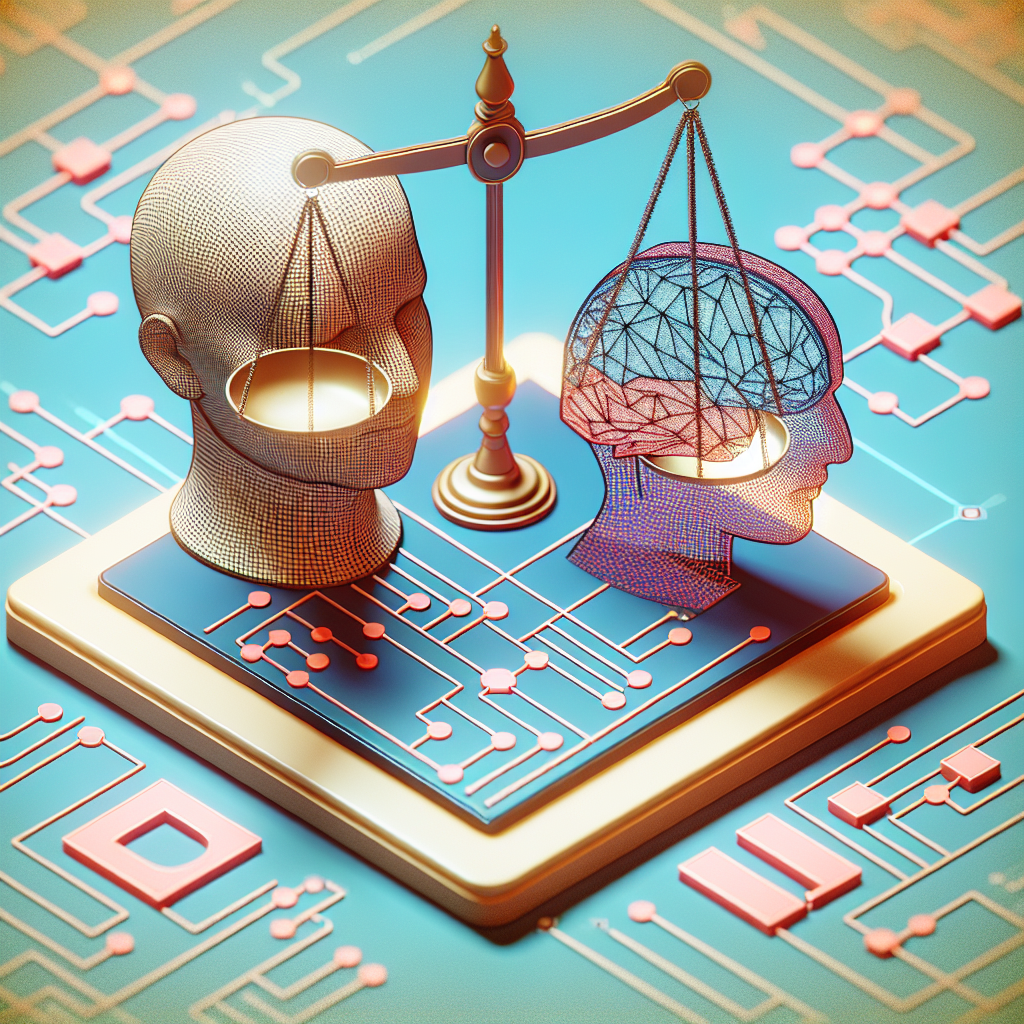Artificial Intelligence (AI) is a rapidly advancing technology with the potential to revolutionize industries and improve our daily lives. However, as AI becomes more prevalent in society, it is essential to consider the ethical implications of its use and regulate its development and deployment. In this article, we will explore the role of ethics in AI regulation and why it is crucial for ensuring that AI benefits society as a whole.
Ethical Considerations in AI
AI systems are designed to analyze data, make decisions, and take actions without human intervention. This raises a host of ethical concerns, as AI systems have the potential to impact individuals, communities, and society at large. Some of the key ethical considerations in AI include:
1. Bias and Discrimination: AI systems can inadvertently perpetuate biases and discrimination present in the data they are trained on. For example, if an AI system is trained on data that reflects historical discrimination against certain groups, it may produce biased outcomes. This can have serious consequences, such as perpetuating social inequalities and reinforcing stereotypes.
2. Privacy and Security: AI systems often require access to large amounts of data to function effectively. This raises concerns about privacy and security, as personal data may be vulnerable to misuse or unauthorized access. It is essential to establish regulations that protect individuals’ privacy rights and ensure that data is used responsibly.
3. Accountability and Transparency: AI systems can be complex and opaque, making it difficult to understand how they arrive at their decisions. This lack of transparency can undermine trust in AI systems and make it challenging to hold developers accountable for their actions. Regulations should require developers to provide explanations for AI decisions and ensure that they are held responsible for any harmful outcomes.
4. Social Impact: AI has the potential to disrupt industries, create new job opportunities, and change the way we interact with technology. It is essential to consider the social impact of AI deployment and ensure that regulations are in place to mitigate any negative consequences, such as job displacement or increased inequality.
Regulating AI Ethics
Given the ethical considerations surrounding AI, it is crucial to establish regulations that govern its development and deployment. Ethical AI regulation should aim to protect individuals’ rights, promote fairness and transparency, and ensure that AI benefits society as a whole. Some key principles that should guide AI regulation include:
1. Human-Centered Design: AI systems should be designed with human values in mind, taking into account the impact on individuals and communities. Developers should prioritize ethical considerations throughout the design process and ensure that AI systems are aligned with societal values and norms.
2. Fairness and Accountability: AI systems should be fair and unbiased, treating all individuals equally and avoiding discrimination. Developers should take steps to mitigate bias in AI systems and ensure that decisions are explainable and accountable. Regulations should require developers to conduct bias assessments and provide transparency into AI decision-making processes.
3. Privacy and Data Protection: Regulations should require developers to prioritize privacy and data protection in AI systems. Developers should only collect data that is necessary for the system to function and ensure that data is stored securely and used responsibly. Individuals should have control over their data and be informed about how it is being used.
4. Ethical Oversight: Regulations should establish oversight mechanisms to monitor the development and deployment of AI systems. This could include the creation of regulatory bodies or industry standards that ensure compliance with ethical principles. Developers should be required to conduct ethical impact assessments and seek input from stakeholders to ensure that AI systems are aligned with societal values.
Frequently Asked Questions (FAQs)
Q: How can AI bias be mitigated in AI systems?
A: AI bias can be mitigated through various techniques, such as bias assessment, data preprocessing, and algorithmic transparency. Developers should conduct bias assessments to identify and address biases in training data. Data preprocessing techniques can help remove biases from training data, while algorithmic transparency can provide insights into how AI systems arrive at their decisions.
Q: What role do regulators play in ensuring ethical AI development?
A: Regulators play a crucial role in ensuring ethical AI development by establishing guidelines and standards that govern AI deployment. Regulators should work with developers, researchers, and stakeholders to create regulations that protect individuals’ rights, promote fairness and transparency, and ensure that AI benefits society as a whole.
Q: How can individuals protect their privacy in the age of AI?
A: Individuals can protect their privacy in the age of AI by being cautious about sharing personal information online, using privacy-preserving tools, and advocating for data protection regulations. It is essential to read privacy policies and terms of service before sharing personal data and to use tools such as encryption and VPNs to secure online communications.
Q: What are the potential risks of AI deployment in society?
A: The potential risks of AI deployment in society include job displacement, increased inequality, privacy violations, and social unrest. AI has the potential to disrupt industries and change the way we work, which could lead to job losses and economic instability. It is essential to consider the social impact of AI deployment and ensure that regulations are in place to mitigate any negative consequences.
In conclusion, the role of ethics in AI regulation is crucial for ensuring that AI benefits society as a whole. By considering ethical principles such as fairness, transparency, and accountability, regulators can establish guidelines that govern AI development and deployment. It is essential for developers, regulators, and stakeholders to work together to create a regulatory framework that protects individuals’ rights, promotes ethical AI development, and ensures that AI is aligned with societal values.

